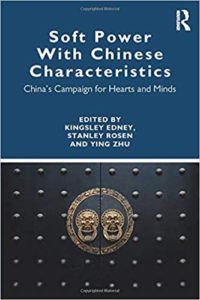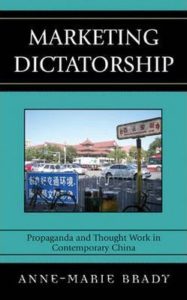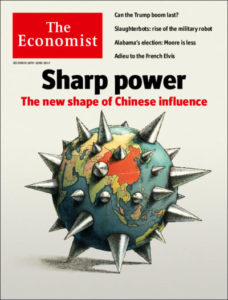Hard truths about China’s ‘soft power’: How Beijing exploits pandemic

A former Chinese military officer worked with Chinese Communist Party agencies and a group with links to organised crime to export tonnes of Australian medical supplies to Wuhan at the height of the coronavirus epidemic there, the Sydney Morning Herald’s Nick McKenzie writes:
The former officer, Kuang Yuanping, is now planning to bring medical equipment to Australia given the peak of the COVID-19 crisis in China appears to have passed. People familiar with his plans said he wanted to help Australia’s efforts to contain the virus and assist China’s soft power and political influence goals in this country through charitable activity.
Sydney-based Mr Kuang is a former officer in the People’s Liberation Army who runs a number of Chinese Communist Party-backed organisations in Sydney and Melbourne. These organisations include some that are loosely backed by China’s soft-power agency, the United Front Work Department, which is charged with building influence for the CCP overseas and countering its critics.
 China’s use of the COVID-19 crisis to position itself as a responsible global leader is not only the height of chutzpah, but also a clear marker of a new phase in Beijing’s manipulation of the global information space, a prominent expert suggests.
China’s use of the COVID-19 crisis to position itself as a responsible global leader is not only the height of chutzpah, but also a clear marker of a new phase in Beijing’s manipulation of the global information space, a prominent expert suggests.
The CCP is employing a propaganda and disinformation blitz not just to protect its reputation, but to go on the offensive, argues David O. Shullman, an Adjunct Senior Fellow with the Center for a New American Security.
Chinese leaders appear set to translate their manipulation of the global narrative and provision of medical equipment to countries hit hard by COVID-19 to their concrete benefit, including through advantageous investment deals with the European Union and individual countries. Deliveries of ventilators, masks, and virus test kits — many of which might not work properly — may come packaged with pressure on countries that have been reluctant to adopt China’s terms, or integrate Huawei equipment in their 5G infrastructure, he writes for War On The Rocks:
The CCP’s manipulation of the current crisis is, however, just one manifestation of its broader impact on the fundamental relationship between information, governments, and populations in countries around the world. China is exporting its authoritarian approach to information control, and bolstering the notion that regimes of all types have the right to manipulate or even shut down their sovereign information spaces to protect their rule.

National Endowment for Democracy (NED)
In addition to exposing the Orwellian aura of “soft power with Chinese characteristics,” a new book – Soft Power With Chinese Characteristics: China’s Campaign for Hearts and Minds, reveals and critiques the larger information strategy of the CCP, notes Martha Bayles, the author of Through a Screen Darkly: Popular Culture, Public Diplomacy, and America’s Image Abroad.
The first chapter, by the distinguished scholar and Hoover Institution fellow Suisheng Zhao, delves into the CCP’s recently stepped-up effort to construct and propagate a “narrative” intended to remind the world of China’s “century of humiliation,” reassure it about China’s peaceful rise, and (most important) ready it for the peaceful decline of the West, especially America, she writes for The American Interest:
In 2017 there was another attempt to elaborate on Nye’s concept: a timely report from the National Endowment for Democracy (NED) entitled Sharp Power: Rising Authoritarian Influence, in which Chris Walker and Jessica Ludwig of NED, along with four regional experts, offer detailed analyses of how the CCP (and the Kremlin) have been using political pressure and economic clout to “pierce, penetrate, and perforate the political and information environments” in four fragile democracies: Argentina, Peru, Poland, and Slovakia. This new definition of “sharp power” is one that deserves to catch on.
 American efforts to mitigate such risks and counter the export of China’s model of information control will require playing the long game — including by supporting civil society and independent media as the guarantors of transparency in countries around the world, adds Shulman, a Senior Advisor at the International Republican Institute:
American efforts to mitigate such risks and counter the export of China’s model of information control will require playing the long game — including by supporting civil society and independent media as the guarantors of transparency in countries around the world, adds Shulman, a Senior Advisor at the International Republican Institute:
Organizations such as Reporters without Borders and Freedom House continue to document closing information spaces, while partners on the ground are training journalists and mobilizing popular awareness of the hazards of creeping information controls by government leaders, elected or not. Washington should increase support for these groups on the front line of democracies’ battle against the advocates of authoritarianism. Perhaps most importantly, the United States and its partners must demonstrate that democracies can respond effectively to crises of this magnitude, and that their model is best-equipped to cope with and recover from its long-term effects.
No comments:
Post a Comment
Comments always welcome!